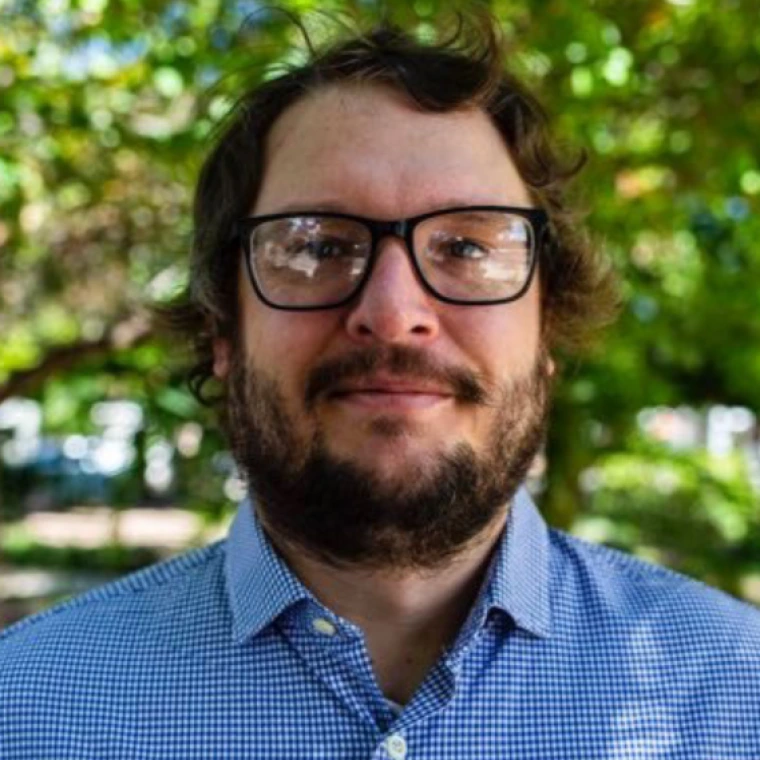Murphy Woodhouse '14

"As a reporter based in northwestern Mexico who regularly covers immigration and border issues, it is hard to overstate the relevance of my time at LAS to my career. The specific knowledge I gained has obviously been useful, but just as important is what I learned about prioritizing and respecting the stories of regular people and impacted communities when researching or reporting on complex issues."
Born and raised in the Intermountain West, Murphy Woodhouse has called southern Arizona home for most of the last decade. He’s one of two field correspondents at KJZZ’s Hermosillo bureau, where his reporting focuses on the trade relationship between Arizona, Sonora and the rest of Mexico. Before joining the station, Murphy was a reporter at the Arizona Daily Star and the Nogales International. Prior to his reporting career, he completed a master’s degree at the University of Arizona’s Center for Latin American Studies and did three wildfire seasons with the Snake River Hotshots. He’s a proud graduate of the University of Montana’s School of Journalism.
"I came to Tucson for graduate school with a desire to better understand U.S. immigration policy and border enforcement, as well as their human impacts here and across Latin America. As a UA Latin American Studies MA student, I took courses with leading scholars that broadened and deepened my knowledge of these and many other topics. But more importantly, the program provided me with opportunities to assist in field work and conduct my own research, experiences that remain among the moving and professionally significant of my life. I will never forget the many nights I spent in migrant shelters with Dr. Jeremy Slack and others, interviewing dozens of the people most impacted by these policies, and in many ways the most knowledgeable about them. Nor will I forget my time in Guatemala investigating the troubling interplay between migration, debt and US immigration enforcement. As a reporter based in northwestern Mexico who regularly covers immigration and border issues, it is hard to overstate the relevance of my time at LAS to my career. The specific knowledge I gained has obviously been useful, but just as important is what I learned about prioritizing and respecting the stories of regular people and impacted communities when researching or reporting on complex issues."

